COSMETIC DERMATOLOGY WITH DR. BOBBY AWADALLA | E005 PODCAST
LISTEN TO THIS EPISODE ON ALL STREAMING SERVICES
ABOUT THE GUEST
Dr. Bobby Awadalla sits down with George Stroumboulis to discuss the business of Skin.
Dr. Bobby Awadalla is a well-respected Double Board-Certified Dermatologist, Mohs Micrographic Surgeon, researcher, author, speaker, entrepreneur and investor. He brings extensive knowledge and state-of-the-art expertise in skin cancer removal, facial plastic reconstruction and cosmetic dermatology.
Dr. Bobby is also active in research and has authored numerous articles in the field of dermatology as well as seven books in the Skincredible series. His expertise in this field has led to him becoming a sought-out speaker at medical conferences, recipient of several awards and one of the most respected individuals in his field.
His credentials include: Double Board-Certified Dermatologist and Mohs Micrographic Surgeon, Fellow of the American Academy of Dermatology, Fellow of the American College of Mohs Surgery, Fellow of the American Society for Dermatologic Surgery, Member of the Leading Physicians of the World, Top Doctor – Findatopdoc, Graduated from Drexel University College of Medicine with honors and admitted to the highly esteemed national medical honor society Alpha Omega Alpha, Chief Resident at Virginia Commonwealth University, and Fellow at Methodist Hospital/Weil College of Cornell University in Houston. Make sure to follow Dr. Bobby on all socials and visit his practice in Orange Country, California.
SKINCREDIBLE DERMATOLOGY: https://www.skincredibledermatology.com
DR. BOBBY’S INSTAGRAM: https://www.instagram.com/drskincredible/?hl=en
SKINCREDIBLE’S INSTAGRAM:https://www.instagram.com/skincrediblederm/?igshid=YmMyMTA2M2Y%3D
FACEBOOK: https://www.facebook.com/skincredibledermatology/
LINKEDIN: https://www.linkedin.com/in/bobby-awadalla-md-00553012/
DR. BOBBY’S WEBSITE: https://www.drbobbyawadalla.com/
“Well it’s just a responsibility. I mean, imagine you see a car coming down the street and somebody’s in the middle of the road would you just go help grab that guy out of the way or push him out of the way or yell. That’s the same instinct for me, like I see a mole on someone’s face that could be a melanoma. It’s almost like if I don’t say something and that’s a melanoma, that guy is dead. Yeah.”
MEDIA RELATED TO THE EPISODE
George Stroumboulis discussing with Dr. Bobby Awadalla about the business of dermatology, skin protection, and the business side of his profession.
George Stroumboulis discussing with Dr. Bobby Awadalla about the business of dermatology, skin protection, and the business side of his profession.
Dr. Bobby Awadalla, AKA Dr. Skincredible, sits down with George in the California studio to jump into some deep conversations.
George Stroumboulis hosts Dr. Bobby Awadalla for their podcast discussion.
ABOUT THE “INVIGORATE YOUR BUSINESS” PODCAST
The Invigorate Your Business with George Stroumboulis podcast features casual conversations and personal interviews with business leaders in their respective fields of expertise. Crossing several industry types and personal backgrounds, George sits down with inspiring people to discuss their business, how they got into that business, their path to the top of their game and the trials and tribulations experienced along the way. We want you to get inspired, motivated, and then apply any advice to your personal and professional lives. If there is at least one piece of advice that resonates with you after listening, then this podcast is a success. New episodes weekly. Stream our show on Spotify, YouTube, Apple, Amazon and all other platforms.
ABOUT GEORGE STROUMBOULIS
George Stroumboulis is an entrepreneur to the core, having launched several ventures across multiple industries and international markets. He has held senior-level positions at progressive companies and government institutions, both domestically and internationally, building an extensive portfolio of business know-how over the years and driving profit-generating results. George’s ability to drive real change has landed him in several media outlets, including the front page of the Wall Street Journal. George was born in Toronto, Canada to his Greek immigrant parents. Family first. Flying over 300,000 miles a year around the world puts into perspective how important family is to George’s mental and emotional development. With all this travel to global destinations, the longest he stays even in the most far-out destination is 3 days or less - a personal rule he lives by to make sure he is present and involved in family life with his wife and three daughters. To read about George’s global travels, stay connected with his blog section.
STAY CONNECTED WITH GEORGE STROUMBOULIS
STREAM & LISTEN TO THE PODCAST:
SPOTIFY: https://open.spotify.com/show/1rW2CmxQoiJNEPOZupJlvd
YOUTUBE: https://www.youtube.com/user/Stroumboulis
APPLE iTUNES: https://podcasts.apple.com/us/podcast/invigorate-your-business-with-george-stroumboulis/id1607693240
AMAZON MUSIC: https://music.amazon.com/podcasts/8fc03929-71b3-483a-a64e-153e30b3d462/invigorate-your-business-with-george-stroumboulis
iHEARTRADIO: https://www.iheart.com/podcast/269-invigorate-your-business-w-92187370/
STROUMBOULIS SITE: https://www.stroumboulis.com/podcast
PODCAST SITE: http://www.invigorateyourbusiness.com
OTHER SERVICES: GOOGLE, PANDORA, OVERCAST, CASTRO, CASTBOX, PODFRIEND, PLAYER.FM, PODCASTADDICT, PODCHASER, PODCASTINDEX and RSS FEED.
FOLLOW GEORGE STROUMBOULIS:
INSTAGRAM: https://www.instagram.com/georgestroumboulis/
YOUTUBE: https://www.youtube.com/user/Stroumboulis
LINKEDIN: https://www.linkedin.com/in/Stroumboulis/
TWITTER: https://twitter.com/Stroumboulis
FACEBOOK: https://www.facebook.com/georgestroumboulis
TIKTOK: https://www.tiktok.com/@georgestroumboulis
CONTACT GEORGE DIRECTLY: https://www.stroumboulis.com/connect
FULL SHOW TRANSCRIPT
George Stroumboulis: Today I sit down with a well-respected Doctor who is a board certified dermatologist and Mohs Surgeon, he also is a researcher, author, and entrepreneur with an electric personality. Enjoy this episode with Dr. Bobby Awadalla, owner of Skincredible Dermatology. In the business of Skin.
George Stroumboulis: Alright, so let's jump into this, man. We're going to introduce you. It's a list of what you are, right? You’re board-certified dermatologist.
Dr. Bobby Awadalla: Double board certified now.
George Stroumboulis: Double board certified.
Dr. Bobby Awadalla: Yeah, I just got my second board certification.
George Stroumboulis: So what does that mean?
Dr. Bobby Awadalla: So, there are certain certifications that the board of medicine will give you and dermatology is one of them. Surgery is another one, pediatrics is another one. So, sometimes under one field there will be sub specializations that will allow you to double board certify. So, if you're a pediatric dermatologist, you can double board certify. If you do pathology, you can double board certify. They, because I did a fellowship in Mohs surgery, they've created a board certification for it now and I just got board certified last year.
George Stroumboulis: That’s huge.
Dr. Bobby Awadalla: Yeah, it's huge.
George Stroumboulis: So double certified, author, speaker, investor, entrepreneur but the biggest thing is like just the life of any room or party, doctor Skincredible, Dr. Bobby, Dr. Bob, it’s an awesome energy, right? It's incredible. So what are you, like how and why did you want to even become a doctor because your background, just knowing you and knowing your family is entrepreneurial, right? Your dad showed up to states with the continue product in business, and become an entrepreneur. How did you grow up in that environment that becomes what you are?
Dr. Bobby Awadalla: You know it's funny because my dad always groomed me to come and help and teach me the ways of business and just kind of being part of that. But I always joke around that my mom brainwashed me at a young age. But I have pictures at like five years old, dressed up as a doctor and that was my choice for my Halloween outfits. So, I don't know where it came from, it was just kind of always in my head and I always wanted to do it. And throughout school I just kind of maintained that. And it just kind of slowly chipping away at it, you go through middle school and high school and then college and then med school and then residencies, internship residency, fellowship and so it's just an ongoing road. But I don't know where it came from; it was just there, so it was a seed.
George Stroumboulis: It's incredible. And we'll get into what you do exactly and like the business side of it. But one of the first stories you ever told me and it just resonated and it's hilarious. It shows who you are as a personality is you always gives back. You're not just a doctor, you're a good human. And I remember you go to Greece every summer, a couple times a year, you vacation there. And I don't want to say this story but the story of where the poor waitress who was coming across and she had… can you just share that because I think it just frames who you are and you're just always ready to help.
Dr. Bobby Awadalla: Yeah. So, we were… that's a good story actually. We were in my hometown, my mom's hometown in Greece and we're sitting having dinner, having drinks. And the waitress, the way the restaurant is set up is, there's the main restaurant, there's the street and then there's beachside tables on the other side. And so, the poor waitress has to go back and forth across the street. And it's a pedestrian street but there are people on mopeds that’ll come by, people on bikes and the poor waitress are carrying this tray full of glasses. I mean there was, it was stacked, I mean…
George Stroumboulis: You or I wouldn't be able to carry it properly with two hands.
Dr. Bobby Awadalla: Absolutely not. I mean she's a pro but she's young, she's like 16 or 17. And I don't know where this bike is coming down, the street it's dark, he slams on her, hits her straight on, all the glasses go up and they come crashing down on her face. And I’m sitting there and everybody's looking at me, I’m like I’m in a town, what am I supposed to do here. So, of course I go run over, I look; I sell her look, go to the… go to the ED, their version of an ED. And let them clean it out and let them do what they're going to do. And I’ll look at it tomorrow or later if you get done. And I’ll see what's done and we can figure it out. The side note is that I had just finished my fellowship and I had a bag, an emergency bag, with me at all times during that time because if I have to go back to the office, I need to have equipment or if I need to go to the hospital I need to have equipment.
George Stroumboulis: While on vacation you’re so caring.
Dr. Bobby Awadalla: So, yeah. Well, I finished. I was moving from Houston, and I had one pack left. And I was like packing up to go, sending my stuff home and packing to go to Greece at the same time. So, I just threw in the kit. And I’m like where this kick does, go; I’m like ah throw it in the bag for Greece just in case who knows. And I just so happen to have a kit. So, she came, she went to the ED, she came back, and the stitching was horrible. She had lacerations right here and right here and they were pretty big, I mean. And she came back with like three stitches in each one. And I look at it, I’m like this is just somebody just put a couple in get her out of here. So, I’m like look, I’m going to meet you here tomorrow morning, we're going to, I’m going to bring my kit and at least they cleaned it and I’ll re-stitch it for you, I would put at least 20 stitches in each one of these, so…
George Stroumboulis: And for someone 20 stitches less scar, right?
Dr. Bobby Awadalla: Well, yeah. So, I was trained in plastic, facial plastic reconstruction. So, for me that was an ER job, they're just trying to solve the issue. So get it together. They're not thinking long-term scars, they're just like you're in the ER, and you have an open wound close it by. My whole job is pretend like, you can't, you weren't even here, my goal is like I wasn't even there, that's my end goal. So, we go in the next morning, she works at just a restaurant. So I’m like alright, what do we have? I get freaking chef's hat; put it over my head, so no hair falls in. I’m like alright, what kind do you guys have some chairs? She's like, yeah, we have “ksaplostres”, which is a lounge chair. Yes. I put it on the lounge chair, I’m like you have a chair for me, and they brought me like a little stool and we're sitting there, its morning. I’m like in the heat and grease sweating and just sewing this, cutting the stages. So, yeah, and I needed an assistant. So, I got the owner who was like a 20, something, young lady. And she was cutting the stitches for me.
George Stroumboulis: I don’t know probably.
Dr. Bobby Awadalla: Old Greek, you had a Greek style with a cafe and the scissors. So, we stitched this young girl up and she did great. I saw her a few days a week later; I took her stitches out and then she's from my hometown. So, I saw her a few times after years later and her scars looked amazing.
George Stroumboulis: Well that’s an incredible story and you still should probably see her like in the summer.
Dr. Bobby Awadalla: Yeah. And we, yeah, her family sees us. And they're always so thankful and grateful. And she was a young, beautiful girl. She was 16 years old; she had her whole life ahead of her and she would have these nasty scars on her face. And I was just lucky to be in a place that I had finished my training, I knew what I was doing, and I could help. And I had just randomly thrown on the kit like…
George Stroumboulis: You said you're like she was lucky to have that, right? It just the line where she was able to…
Dr. Bobby Awadalla: It just the line as you said. Yeah.
George Stroumboulis: So, when we first met and then I know you. And then we hang out socially. And you never think of like what you actually do, right? It's just always like oh man, we have good laughs, good energy, we talk about everything. And a stressful day for me at the office is like ah, someone cancelled an order or the lighting didn't work, like a stressful day for you. It's like I had 25 surgeries today, you're like what, you just notch along. Like, you're never the first guy to say what I’m doing but basically you save people's lives from the cancer aspect, like it's a big deal. And what you're able to do is pretty remarkable.
Dr. Bobby Awadalla: You know it's always, when you're in something and you're doing something, you never see it as other people see it from the outside. So, yeah, it's pretty incredible in the sense that I go every day to the office and the office is 20, 22, 23 appointments, usually surgical, like I’ll have a Mohs day, where we're doing skin cancer removals. And it's literally 20 to 22 patients, 25 patients sometimes. And they're all there waiting, anticipating. And you're removing their skin cancer, you're stitching them up, they're expecting the best results. You have to be on your a-game every single day and… But that's what I do. It's just part of my day.
George Stroumboulis: An average surgery is say 30 minutes, making it up, right? That's 30 minutes for them, that's everything that appointment. You have 15-20 more people after that. And you got a chat and you have this incredible personality. How do you even find that space to even get into a good framework mentally every day because you're human at the end of the day, you’ve to get that to everyone, every interaction…
Dr. Bobby Awadalla: Right. And it's not easy. Sometimes you have to battle through it. Like if you're not having a good day or I get bad news. I’m running multiple things at the same time. If I get bad news from the business side of things, if I’ve not, if I didn't get what I wanted on this deal or something like that, of course it affects me, I’m human. But you have to just kind of realize you have a human under there that's freaking out. Like, I’m getting caught on, I’m getting an injection, he's stitching me up, he's pulling this, he's pulling that and you got to just put your mindset into. Alright, let me distract this person, let me… so, it's partly its just practice. Like, if you dribble a basketball every day, dribbling becomes second nature. So, for me I’ve just learned how to distract people and just go into that mindset of okay, now you're on. So, it's just like, let's say an actor, lights, camera, action. And then he's like from going like this, hi, I am. And so you just kind of become an actor to a certain degree.
George Stroumboulis: We're going to share links but if you don't follow Dr. Skincredible. Bobby. You see your personality, like you take something people are singing with you, like you're touching people's lives. It's amazing, transitioning. I want to talk about the business side of what you do, right? So, everyone knows we're based in California, this is where you're born and raised and this is where your practice is. So the people listening outside of state, outside, in another country, wherever we're at. How does it look like? What's the most type of surgeries? What's the biggest type of work that you do? Is it more cosmetic? Is it cancer skin surgeries? And what does that look like?
Dr. Bobby Awadalla: So, I really pride myself in really doing the whole field of dermatology. I really like doing the general dermatology aspect which is acne, rashes, bumps, lumps, people are have concerns, they come in, they see, they get an opinion. Most of what I do, most of my time is spent doing Mohs surgery, which is skin cancer removal surgery that has the highest cure rate period. It has about a 99 percent cure rate for skin cancers.
George Stroumboulis: Sorry. What does that mean? Mohs the specialization, not every dermatologist who does that, graduates with that, it's a specialty. What's the alternative if you're not getting the Mohs procedure?
Dr. Bobby Awadalla: So, Mohs is a… yes, Mohs is part of dermatology. When you're doing your general dermatology training, some programs will have some exposure to it, some programs have a little more and some have a little less. But by no means what I had as a one year fellowship trained, most surgeon which is that's all we did. So to give you an example, a regular dermatology, residency will maybe have. You exposed to 200 or 300 Mohs cases. In my year of fellowship I did over 5000 surgeries. So, when I come out, I’ve done 5000… been part of 5000 surgeries. Right, so some dermatologists especially in California do Mohs surgery. And they could be qualified to do it and do well. And they've been doing it well for years. But a fellowship just evens the playing field like you've done this. And that's why they created the board certification. So, now they recognize the people that have done this and put extra work in are board certified in it and they have the license. So, from here on out that will change, right? So, the general dermatologist will not be as qualified without that board certification. So, I do a lot of that. I do probably 70 percent of what I do is low surgery.
George Stroumboulis: Not just in one location, you’re an entrepreneurial in how you are servicing…
Dr. Bobby Awadalla: Right. So, I have my office and I do all the Mohs surgeries for my office obviously. But there are other offices that contract me out because I have this specialization and they don't want to do the surgeries or they don't have the time or the ability or the specialty to do it, whatever combination of factors. They call me and they say hey, we have x surgeries a month that we need done, will you come and do them for us. And so, at any one time, I have between three to 10 offices that I do this for. So, I’ve done this for three states. I do it. I’ve done it for Las Vegas. I had five offices in Las Vegas. I was doing it for Lake Havasu or so and I was doing it for northern California. I go to the desert, palm desert Marietta. I still do there. I just do their surgeries there. And so it's pretty intense, I’ll go out, I’ll do, I’ll do, they'll line up their patients for the day, I’ll go there, I’ll do their surgeries and then I’ll come back. And so, it requires some traveling, depends one hour, two hours to the desert. Sometimes a flight and a couple hour drive. But, they have a need; we're serving underserved areas as well. Like Lake Havasu doesn't have the capacity to take care of all those patients. So to a certain degree, it's also nice because we're treating underserved areas. And it's rewarding because they're so grateful. You know, when you have access to everything you just become, you just think its normal; when people don't have doctors and they don't have care, you're the guy.
George Stroumboulis: They can just hop on a plane and go somewhere and there’s economical barriers and so on.
Dr. Bobby Awadalla: Right.
George Stroumboulis: Yeah, it's remarkable. When you… so you do all that. When you see someone, right? Even socially, right now you're sitting up, looking at me. It's hard not to, from the cosmetic side to think, man this, this and this. Are you just programmed that way? In your mind.
Dr. Bobby Awadalla: You know what? You'd think I was. Sometimes I noticed things. And of course I noticed them. What I noticed more is moles and abnormal moles, if I see an abnormal mole on somebody because melanoma's such a deadly disease. I’ll go straight to that person and say you need to check this.
George Stroumboulis: Even if it is socially or…
Dr. Bobby Awadalla: Yeah. Well it's just a responsibility. I mean, imagine you see a car coming down the street and somebody's in the middle of the road would you just go help grab that guy out of the way or push him out of the way or yell. That's the same instinct for me, like I see a mole on someone's face that could be a melanoma. It's almost like if I don't say something and that's a melanoma, that guy is dead. Yeah.
George Stroumboulis: That guy is dead. That's just crazy. And you're in Southern California, so much exposure.
Dr. Bobby Awadalla: Right.
George Stroumboulis: I’ve been living here seven years now, prior to that growing up in Canada, very little sun exposure summer time. But we would have used it even more; you go to Greece, you're putting on basically baby oil to try to get just so dark…
Dr. Bobby Awadalla: You want to prove that you went somewhere and yeah…
George Stroumboulis: Which is probably worse with some smaller doses but what is some advice even in protecting your skin because it's serious? Even now that I’m getting older, I’m in my 40s, I’m scared as shit of all that sun exposure, is it going to result in something. What does it look like?
Dr. Bobby Awadalla: So, it's very interesting that you brought those two things up because you are from Canada; they've actually done a study on this. And what they did was they studied people in England that have overcast, almost the entire year, versus people in a sunny location like southern California. And they monitored their sun exposure for the year and their habits. And so the people in England have overcast all year long. But, they'll go a couple times a year and fry for like two weeks, they'll sit on a beach and fry for two weeks, get sunburned. And just try to get as tan as possible. The people in California, they monitored, just went through their daily life, didn't really go to the beach, they were just normal people. Mailbox, supermarket, car driving and what they found was that between the two populations, a non-beach goer sun tanner in California got more sun exposure over a year than people in England that went and just went tanning for a month out of the year. Yeah because that daily dose, the micro doses every day, car to the supermarket, front door to the mailbox, that constant sun exposure, driving, people, we get a lot of sun driving, people don't recognize that, it goes right through the windows.
George Stroumboulis: It does. So even in my mind I always thought oh UV protection, when you're driving, you're getting a taxi tan. Yes, that's exposure. You don't realize that.
Dr. Bobby Awadalla: Yeah, you don't realize it. And there are moments every day that you make decisions that you don't realize. Like, we'll go to lunch in California and you'll sit outside, you think it's a beautiful day; well you're getting pounded for an hour of sun exposure even if it's not that bright or hot, and so all those little things add up. And so in living in a place like this especially, you have to be a lot more vigilant. And the sun is the number one cause of skin cancer and aging. So, if you're young and beautiful, that's a good reason to try to maintain it. And if obviously for skin cancer side of things also want to avoid having issues later on. Yeah.
George Stroumboulis: Again, it's the obvious stuff, we're not trying to educate people on sun protection specifically what we should is, it is the basics like apply protection, hats, stay out of the sun, is that what you preach every day.
Dr. Bobby Awadalla: Yeah, its basic stuff. I mean, obviously a hat is going to protect you. We recommend broad brimmed hats. The baseball caps don't do anything for the sides. And so they don't really do a good job. So hats, sunscreen every day apply before you go out. If you're going to be out in the sun, specifically reapply every two hours. So, if you're going to the beach, at the beach sit under umbrella, avoid sun from like the peak hours from like ten to two. So, you want to go to the beach, go at two, and go two to four. Avoid, like I said avoid like exposures for no reason. So, if you're going to go sit outside, make sure to sit under an umbrella, don't go sit in the sun for an hour where you're getting unnecessary exposure. You know, where you can wear some protective clothing, they make clothing that looks normal clothing that has and has a protective factor within it.
George Stroumboulis: Does that get you action in Mykonos if you wear sun protection clothing?
Dr. Bobby Awadalla: You know some of them aren't half bad, they have some cool, before they've worked their way up. So they have some cool clothing. I think you have a lot more to worry about in Mykonos but…
George Stroumboulis: Well, let me ask you this debate. When you're putting sun lotion on, should it be caked on and white, like if it's a white, do you need to put it on where you're covered, and it's white because I’ve heard if it's not white on your skin, then the sun is getting through. Is that true?
Dr. Bobby Awadalla: So, yeah, there's a lot of truth to that. So, when they test an SPF number in a laboratory, it's basically caked on. I mean you're talking about gobs of sunscreen, thick sunscreen on your skin. And so when they test it, that's how they test it, so, if, you…
George Stroumboulis: That’s not natural, right? Who is doing that.
Dr. Bobby Awadalla: No one's doing it. So, if you want to get an SPF, the number that's on the bottle, that's how you should do it. And so nobody's going to do that. And so what people ask me is like oh, I’ve heard SPF over 20 or 30 doesn't make a difference. And in a lab, anything over 30s you're trying to just get small amounts of protection. But we don't live in a lab. What's the first thing anybody does when they get their sunscreen on is they rub it in, so it doesn't show. So, we're not applying sunscreen as it's supposed to be applied. And now what they found is if you apply half the amount of the recommended sunscreen, so you're supposed to put one ounce of sunscreen for your body. If you do half an ounce of sunscreen for your body, you don't get half the protection, you get… you get a square root of the protection. So, if you have a SPF 100 and you apply half, you don't get an SPF 50, you get an SPF of 10, right? So, I always tell my patients always get the highest sunscreen because that you can get on because you're never getting the protection you think you're getting it.
George Stroumboulis: Got you. So a SPF 30 is like a 2, whatever it is.
Dr. Bobby Awadalla: Right. You're not getting it because you're not applying it correctly.
George Stroumboulis: Okay. Which leads into… well actually we're going to talk about your entrepreneurial side as well. But talking about the cosmetic side of what you do. And there's listeners out there who have kids, who teenagers starting to get older, insecurities. And we're all on social media and this person looks perfect and you got to do this. And I don't like this. You make money based on making people feel better, look better, right? Is there an age where you think, give it some time you shouldn't be focusing on this right now whether you're a boy or a girl coming up. Like, do you see most of these people in their 20s?
Dr. Bobby Awadalla: That's a really good question. I think there are a lot of variations, really important things that happen at different age groups. We have young kids that are teenagers that come in with their mothers or their fathers. And you have to discern are you treating the mother because the mother is concerned about the cosmetics of the patient… whether cosmetics just means acne, could be just acne. You have a young boy with three pimples, he's 14, and he doesn't care about three pimples but are you treating are the mother concerned. So, you have to discern who's interested in that treatment. And a lot of times it's the parents, the kids don't care and if the kids don't care they're not going to follow through with the treatments, they're not going to get better. So you're going to have to have that discussion. Then you go into the 20s where you have like a young girl that a young woman I should say or a young man that wants starting to want cosmetic treatments. And sometimes it's appropriate, there are some 20, something year olds that have starting to have wrinkles in the forehead and they start doing Botox. Lower younger 20s is probably a little early but by mid to late 20s I don't think it's abnormal to start doing small things like Botox. Now that's within the normal realm, right? And then from there on you can start adding things as you age naturally, you will need or you should get certain things. On the flip side there's the unnatural wants, right? So, if a 22 year old comes in and she wants to look like somebody she's not or she's… there's body dysmorphic figure syndrome, you got to be careful that these people don't have psychological problems that want to look like somebody else or want to do major alterations to their faces. So, you got to just kind of always judge and read the person who's in front of you and see their motivations and if they're within reason or not reason. And then you have to be responsible as a doctor and treating them. I have people that come in and they're like put more in my lips. And I say no. Yeah, I’m like…
George Stroumboulis: It doesn’t matter about the dollar you are chasing.
Dr. Bobby Awadalla: You got to, yeah, you're going to look like a sausage, and your lips are going to look terrible. We're not trying to make… And then it also reflects on me because…
George Stroumboulis: Walking billboard right there.
Dr. Bobby Awadalla: Yeah, it's like whom did your lip, so Dr. Bobby did my lips. So, I send patients away. So, I do things to look natural, naturally beautiful enhanced but not extreme, not overdone. And I just won't do it. So, you have to know the right, you have to kind of read the people and there's a lot of people with that want to go overboard, that trying to convince you to do that and you just have to…
George Stroumboulis: So looking at males and females, what are the top three most common things that you do from a cosmetic stand point for men and women?
Dr. Bobby Awadalla: So, just broadly Botox or neuromodulator to stop the wrinkles on the forehead and the upper face, very common. Almost everybody should and can get those to stop the wrinkling of the forehead, the glabella between the eyebrows, and then the cross feet on the sides of the eyes. Fillers also very common, as we age we lose volume in the face, so we can revolumize the face. We get wrinkles, we want to fill in. Like the nasolabial folds between the cheek and the upper lip is a common place. So, those are very common, they're very simple, you walk in, you do them and you walk out and it looks great and you're done. The other thing that we do is laser, lasers, resurfacing to help with tone, texture, wrinkles, pore size, these lasers kind of help remodel the top layers of the skin. And so, those are probably the top most common. We're doing a lot of CoolSculpting® and body sculpting lately.
George Stroumboulis: And those are laser machines that do this?
Dr. Bobby Awadalla: No. Those aren't lasers, those are specific… they're different types of machines. CoolSculpting® is a fat freezing machine, you put it on your certain area of your body and it'll remove 20 to 25 percent of the fat in that area. And so really…
George Stroumboulis: So overall how long…
Dr. Bobby Awadalla: Every treatment you do. So, if you have a little, you have a little belly that you want to take, that you want to take down. If you put the machine on that part of the belly, it will remove 20 percent of the roundness of that belly. And it'll do it every treatment.
George Stroumboulis: So, you've got a guy that comes in. He's got a potbelly, right? Not big but he's got there. Can they expect with regular treatments over the course of six months? This can essentially…
Dr. Bobby Awadalla: Yeah, less than that. I mean it depends, right? We're not talking about beer bellies here, we're talking about, you're reasonably… weight, you're in weight, you're reasonable in a way, and you’re not obese. But you have that little pooch at the bottom that kind of you don't like how it looks, you can't get rid of it or you have a little bit of love handles. You can take that down and look really good within one or two treatments. So, yeah, you can make a significant difference. Now, if you're a little heavier, you can still make progress but this is not a weight loss solution. If you need a weight loss solution, you need a weight loss solution. This is a trimming. So imagine you have the deli meat at the, you know, you see that curved deli meat. And imagine just taking a knife and just slicing 20 percent off the top, that's what you're doing. Its precision, it works great. You can use it on the under bra area, the love handles, the lower belly, you can use it on your internal thighs, your external thighs; you can do it under the butt. Some girls have or some girls or guys have banana rolls they call it, it's like a little roll under the butt. So, you have all these different areas and it's precision. The other thing we do for body sculpting is called M-sculpt which is a mainly a muscle stimulating machine. So you sit down, you put it on. And it's a 30 minute treatment and it's as if you're doing 20000 crunches, if you do it on your stomach, every 30 minutes.
George Stroumboulis: That’s cheating. This is incredible.
Dr. Bobby Awadalla: It's totally cheating. And so you sit down, we turn the machine on, and you're just, it's just doing… like doing an exercise. And so you're getting 20 percent increase in muscle, mass and the bonus on that, it also has a radio frequency on top of that which heats up the fat cells at the same time. And so it disrupts fat cells. That machine is more global. So, it's not precision cutting, it's not like a knife cutting through but it just globally treats the area. Let's say we're doing the abdomen, it globally treats the area to decrease the amount of fat in that area.
George Stroumboulis: So at this point of the episode will you take off your shirt and show everybody? So, this is all amazing. One of the things that is quite impressive, you're doing all this. And when I think of doctor, right? Just doctor in general, they went, they studied really hard, they're great at what they do and they're a doctor, right? I don't associate it often with entrepreneurial mindset, when it comes to a doctor, this is my profession, I do it, my patients come and that's it. You were born into this, be an entrepreneur, figure it out for yourself, you have to and you're a doctor. So, it's amazing, best of both worlds, good segue into you develop like this incredible product. And again I don't know how much we can discuss but that's when I first met you was while you were a dermatologist, doctor, Mohs surgeon and you were developing this game-changing supplement. And it was just incredible seeing, days, working on this, discovering Walk us through what was that product to the extent that you could speak to it? And what was the duration? We'll talk about some of the economics of it, really impressive.
Dr. Bobby Awadalla: So, yeah, when I was in residency, I was kind of just thinking about things and I was learning about skin and I was just kind of frustrated that there wasn't something that really was healthy, that could make a difference in people's skin, that they could do for long term, something that could help them out. And, you know…
George Stroumboulis: From the inside, not topical.
Dr. Bobby Awadalla: Yeah. So, I thought about it and I said look, if we can support skin health just like we support through systemic, through our bodies because… let me back up. Where this came from is I did research with a gentleman, a very well-known doctor in North Carolina that proved that basically people have a really hard time using topical medications. It's one of the hardest things; we try to get people to do to put on creams for even first when they're sick, when they have rashes, when they have diseases, when they have psoriasis or eczema, long chronic diseases that they basically use the medicine for three days after they leave the doctor's office, and three days before they come back in. It's really hard for people to maintain that. And so having done that research my mindset was already there. And so I was like there's got to be something we can give internally. So, I started looking into it and I came up with the idea that we can support the skin from the inside out with a supplement. And I started researching everything that every lab in the world had ever produced on this topic. And I found that there was a lot of stuff out there and nobody was doing anything. So, as I came out of residency and training, I worked on this, the formula while I was in training.
George Stroumboulis: Like a side project? Passion project?
Dr. Bobby Awadalla: Yeah, after. Yeah, outside of studying and for the boards and working all day for, I would just kind of research at night or whenever I had some time. Different things that I wanted to put in my formula and I put together a formula that I thought was going to be the highest clinical output for somebody. I wasn't skimping on. I wasn't thinking about costs. I wasn't thinking about things that would come down the road that would become important. I was just, a doctor trying to get the best clinical outcome. And I put this formula together.
George Stroumboulis: All natural components?
Dr. Bobby Awadalla: All natural vitamins, natural herbs that had shown to be supportive of the skin. And so I put that together while I was training. And as soon as I came out, I started working on figuring out how to do this. And I had no idea about any of this. I mean I just trained to be a doctor. I just came out of a full-time doctor job, dermatology job, in an office doing, general dermatology and cosmetics and Mohs surgery. And at night I’m here trying to figure out how to start this. So, I go to this beverage show because I was thinking we could do it into a beverage, so people can drink it and be easier. And so I end up going there and learning a little bit about the business. And then I met a couple contacts. And one of them was a formulator to kind of put this all together and make flavor. And so we started putting the formula together and then I got a consultant, a beverage consultant to kind of help me fix the business and… So, I just started figuring putting pieces together.
George Stroumboulis: I mean if you're smart enough to study to become a doctor and figure this out, I’m sure it was a challenge for you, where do I go, even that process of let me go to the beverage show. Step one. So it just that progression that it seems so natural. Was your motivation as you started going, was it growing and could it become a beverage company?
Dr. Bobby Awadalla: Yeah, I mean, I thought that this could be a huge success. I mean, you're really offering something that doesn't exist. And certainly nobody knows about this. So, if you can tell people that hey, take this drink and you'll have a significant amount of support for your skin in different areas, would you take it? And the answer was always yeah. This is a no-brainer. And so it was kind of like a daily vitamin. We created into a drink to make it more fun and easy and accessible but literally were a vitamin. We didn't put it into pills because early on with the amount of products that I wanted to be in there, the capsules would have been like eight to ten capsules per day.
George Stroumboulis: Or swallowing one this size.
Dr. Bobby Awadalla: Right. Or just have a pleasant tasting drink that you just take down. So that's why we went that route. And so you figure all these things out as you go, it's…
George Stroumboulis: In just doing that, right? You self-funded this essentially from start to finish. And I remember just conversing and having conversations, you're not a SEO expert; you're not an operations person. And you knew to hire the right people and figure it out. You’re also became master in that section as well. You could speak to it and can learn about it, because if you are paying those bills every month, you want to know where it is going.
Dr. Bobby Awadalla: You learn quickly. Yeah, you learn quickly. Yeah, you have to learn because these things come up. I obviously had great help. My partner at the time was in the corporate world, he was he in consulting, and he had a lot of experience with different businesses and running different aspects of businesses. So, he was a great help. We hired a marketing expert that also helped and taught. And so we all learned at the same time. But specifically about the business out there we were doing. But we, yeah, we learned. I learned had no idea about SEO, about the details of, pay-per-click, about Facebook advertising, about cost per acquisition and you just learned a whole new language which is amazing. It was basically a second med school, right? It was a second training…
George Stroumboulis: You guys are MBA through that. Yeah. And it's not even you're talking about the marketing side of it but even the packaging, a drink versus a powder and economics of the shipping versus this like just going through that.
Dr. Bobby Awadalla: Oh supply chain, yeah; getting ingredients, sourcing, what kind of ingredients, were they coming from, how they're putting them together. The design, we had a designer that had to come up with this, where do you want this, where do you want that… I mean, yeah, all aspects of this kind of crazy new business to create a box to create a packet inside the box to get the labels to… the stickers to close the box to be compliant with, just the little box on the back that says calories and this and that, just to get that right took an enormous amount of time and effort and how it looks and how people can read it and where it does go.
George Stroumboulis: Yeah, you didn’t even talk about distribution. There are so many elements to this and this was over the course of how many years?
Dr. Bobby Awadalla: Yeah, it was a total run of about five years. Yeah, from start to finish when we kind of let it go. But, yeah, we had to decide. We changed distribution several times we started out by going to the beach towns and putting them in where we live, putting them in different little pharmacies and gas stations and stores in the area. And having people locals, local, hiring locals to kind of go to different places and try to get them in. We went, and then went to kind of considered national distribution in the big chains. We went into a couple supermarkets and then we went into heavily online. And then we changed from single bottle used to 30 packets, we changed into a vitamin packet that we went to 30 packets to do a daily, basically a daily packet. So, you can actually see the improvement. So there were a lot of adjustments.
George Stroumboulis: The most impressive thing and this is how I operate my business and what I I do, I see this every day, It’s so easy to sit there and create a perfect plan on paper, and these are my projections, and this is our business model, this is our strategy, and this is what we are following. The minute you step outside and launch it to the world, that shit goes out of the window. And you guys were constantly evaluating, well the market said this, let's do this. And that continual feedback and the willingness to even have an open mind. Market doesn't know what they want and you guys kept on adjusting. Like for me that's like a huge takeaway to do that. So when you decided hey, I got a million other things, I’m going to walk away from this. What are some lessons over those five years that just resonated with you on, if I were to do this again in the future from the business side, from whatever side, what would you do differently or what was something that…?
Dr. Bobby Awadalla: I think initially, one of the things is obviously is who's funding the company. And I funded the company entirely, the entire time and it adds up quick. And I had a lot of offers for money but I didn't want to take people's money unless I was certain this was going to go somewhere. And I think a lot of successful businesses and not successful businesses take money up front. And so if I had to do it again, I was trying to be responsible with not taking people's money because I wasn't sure where this would go. But I think a lot of people take money early on and that helps support them and make different decisions. And that would be one kind of decision I would kind of have to rethink about which way to go.
George Stroumboulis: Can you share…? Sorry. Just on that can you share? You didn't put out a couple bucks that we are talking about significant life changing money to a lot of people. It wasn’t just...
Dr. Bobby Awadalla: Yeah. Well, I was working and as I was getting paychecks I was paying bills. I mean it was crazy for five years. And the higher the bills got, the more I would work to pay those bills. And I would still have to come and run the company at night. So, it got pretty, it got pretty intense. I mean, the bills could, that's kind of what happened, right? I mean, we grew so much and as you grow, the need for money comes in. And I was self-funding. So, I was finding more work and to supplement the need for that which is great because I was able to do it but… And many people can't do that. So they have to take the money. But I didn't put myself under pressure of anybody that I had to report to that what are we doing with this money, what are you doing with this money, when are you going to show me profits, when are you going to show me this, when are you going to show me that so on. That side it was freeing but on the other side I was working twice as hard to fund something and then work on that on off hours. So, it's just an interesting dynamic would I next time take money up front and save myself from having to put my own money in. And then work harder to do it or do I take money and then do it full time rather than working to make money to support it. That's just one of those things that, I still don't know the answer to, if it was money that was from a venture capital fund or something like that, it's a lot easier to take. But when Uncle Joe tells you here's two hundred thousand dollars, put me in, you're like Uncle Joe, I don't know, maybe you should buy a house.
George Stroumboulis: So, it's incredible from that standpoint and what you guys did. And again I know we're pressed for time, you have surgeries to do, just two last things. This did open up doors though like the success of Dr. Bobby Awadalla was interviewed by Dr. Drew, Maria Menounos, you've been on every cover of medical magazines, like its pretty awesome that you were able to do that and carry it through.
Dr. Bobby Awadalla: When you look back, yeah, it's pretty cool. I mean, I had a lot of opportunities; I met a lot of people I would have never met. It's been great. And the whole adventure's been great. I mean I learned a lot. I’m using a lot of what I learned, the SEO, that's all relevant still. Like, right after we shut down the company, part of the reason was I wanted to start my own office. And so literally, I think it was a month later I bought my first office. And I started my first office and all that stuff came into play. I mean, we're still dealing with pay-per-clicks and we're still dealing with SEO and we're still dealing with Facebook and Instagram advertising and there's still funnels that we're creating to get people into the business and automating appointments. And so we're way advanced as a company on these things. I mean, I look at our setup and it's like amazing. You can go on our website, click appointment, pick a time and it's literally one a time that is an actual real time that you can get an appointment, click on it, get an appointment and you're done. I mean its three clicks. Nobody has that. I mean, very few doctors have the wits to do that because they didn't have that training or they don't have the systems in place to do it. And so you're on hold, you're, we'll get back to you or we can't get through, we don't have that, you can go straight into the website, book a reservation, you're done.
George Stroumboulis: Absolutely. One final one, personal family, right…? When you started as a doctor, single, busy, traveling the world, doing everything. Now as a married doctor still growing your business, how has that support been strengthened? How are you better at what you do because of growing your foundation now as a family?
Dr. Bobby Awadalla: Right. I’ve always been lucky. I’ve had amazing family support throughout my life. My parents were always there for me and my sisters. They did everything. They put us through med school. They put us through all the schooling. They supported us. So, we just had a lot of support in that aspect and ongoing still. I mean, it's incredible. Despina (Katsigiannis) brings a whole another aspect to that because she's there every single day, she sees the ins and outs of what happens on a daily basis, if you're not really in the house, you get a sense of what's happening but you don't really know the day-to-day and the struggles that come with just breathing in business and in life. I mean so many personal struggles, so many business struggles, and so many professional struggles. And so, I think she just she's just there as a constant support like always there and always supportive and no matter what happens, she's always trying to help and figure out a way to be part of the solution. So it's been amazing. I think when children come, I think that's going to probably go the other way, and then it's going to be me trying to… Well, it's going to be another full-time job, right? So, I’m going to have 17 full-time jobs. You know better than anyone else George. I mean you…
George Stroumboulis: You still don’t have a lot of grays. It’s balance, you figure it out. When you get busier, they just put it into the schedule; you just figure it out, right?
Dr. Bobby Awadalla: Right. I’ll be calling you for advice…
George Stroumboulis: Yeah, I won’t be able to answer. I got my own shit. Okay, yeah, final things to discuss, plugs, anything that people should know, we're going to throw up all the links.
Dr. Bobby Awadalla: Yeah. I mean, come see us. Its Skincredible Dermatology, skincredibledermatology.com. We'd love to take care of your skin, general dermatology, cosmetics. We're doing a lot of cool stuff. We can make your skin look 100 times better. Just come and see us, we'll find a personalized solution. I have a rock star partner in Anissa Mansoori that's there, doing cosmetic treatments as well. We're, if you need a surgery, if you have skin cancer, if you have any concerns about any spots, we can look at them. We're there for you, we get you in quick. We get it, we get a professional opinion and we'll get it done for you, you know. I’m blessed, I appreciate everything I’ve been given. And I hope that I continue to grow and have the support that I have. I’m blessed that you asked me to be here. It's been fun.
George Stroumboulis: No dude, you’re amazing. You're a legend; just keep rocking and thank you for making the time. I know the time is one thing that you don’t have, so this is awesome.
Dr. Bobby Awadalla: Thanks George. You invigorate me.
George Stroumboulis: I invigorate your skin.
Dr. Bobby Awadalla: Invigorate your skin, that's it. It's coming, you get it now, get it now, I’m going to get it quick.
George Stroumboulis: Thank you.
Dr. Bobby Awadalla: Thank you George.
CONTENTS OF THIS VIDEO
0:00 INTRO
1:50 MEET DR. BOBBY AWADALLA
3:30 PERFORMING SURGERY ON BEACH IN GREECE
8:45 STRESSFUL DAY FOR A CANCER SURGEON
10:15 GETTING INTO A GOOD MINDSET
11:45 THE BUSINESS OF DERMATOLOGY
12:30 MOHS SKIN CANCER REMOVAL SURGERY
16:10 WANTING TO MAKE PEOPLE PERFECT COSMETICALLY
16:45 MELANOMA IS A SERIOUS DISEASE
17:25 SUN EXPOSURE IN SOUTHERN CALIFORNIA VS. ENGLAND & CANADA
19:10 SUN EXPOSURE EVEN WHEN DRIVING
20:33 SUN PROTECTION TIPS
21:34 SUN LOTION APPLICATION MYTHS
23:20 COSMETIC SURGEY WITH YOUNGER KIDS
26:45 TOP COSMETIC PROCEDURES FOR MEN AND WOMEN
28:10 COOLSCULTING AND WHAT IT IS
31:15 DEVELOPING UVO DRINK SUPPLEMENT
38:00 STARTUP DRINK COMPANY
41:00 ADVICE IF YOU DO IT ALL OVER AGAIN
46:00 MARRIED VS. SINGLE LIFE
MORE ON HOW TO BECOME A COSMETIC DERMATOLOGIST
Becoming a cosmetic dermatologist with a focus on Mohs surgery involves several years of education, training, and specialized experience. Here are the general steps to pursue a career in this field:
Obtain a Bachelor's Degree: Start by completing a Bachelor's degree in a science-related field, such as biology, chemistry, or pre-medicine. Ensure you take prerequisite courses required for medical school admission.
Complete Medical School: Apply to and attend an accredited medical school to earn a Doctor of Medicine (M.D.) or Doctor of Osteopathic Medicine (D.O.) degree. Medical school typically takes four years and covers various medical disciplines.
Residency in Dermatology: After graduating from medical school, complete a residency program in dermatology. Residency programs in dermatology generally last three to four years and focus on the diagnosis, treatment, and management of skin disorders. During your residency, you'll gain exposure to Mohs surgery techniques.
Obtain a Medical License: To practice medicine, you must obtain a medical license in the country or state where you plan to work. Licensing requirements vary, but typically involve passing a licensure examination and meeting specific criteria set by the licensing board.
Fellowship in Mohs Surgery: Pursue a fellowship program specifically focused on Mohs surgery. Mohs surgery fellowships provide specialized training in this precise and microscopically controlled technique for removing skin cancers. Fellowships generally last one to two years and provide hands-on experience under the guidance of experienced Mohs surgeons.
Board Certification: Once you have completed your residency and fellowship training, you can pursue board certification in dermatology. Board certification is not mandatory but is highly recommended as it demonstrates your expertise and commitment to the field. In the United States, the American Board of Dermatology offers certification in dermatology.
Gain Experience and Build Expertise: After completing your formal training, work in a clinical setting to gain practical experience in cosmetic dermatology and Mohs surgery. Continuously update your knowledge by attending conferences, workshops, and staying current with the latest advancements in the field.
Optional: Fellowship or Additional Training in Cosmetic Dermatology: If you wish to specialize further in cosmetic dermatology, you may consider pursuing additional training or a fellowship in cosmetic dermatology. This can provide you with advanced techniques and expertise in cosmetic procedures.
Establish Your Practice or Join a Practice: Once you have acquired the necessary training and experience, you can either establish your own practice specializing in cosmetic dermatology and Mohs surgery or seek employment with an existing practice or healthcare facility.
It's important to note that the specific requirements and regulations may vary depending on the country or region where you plan to practice. It is advisable to research and comply with the local licensing, certification, and training requirements specific to the location you are interested in.
Remember, pursuing a career as a cosmetic dermatologist with a focus on Mohs surgery requires dedication, commitment to patient care, and continuous learning to stay up-to-date with advancements in the field.









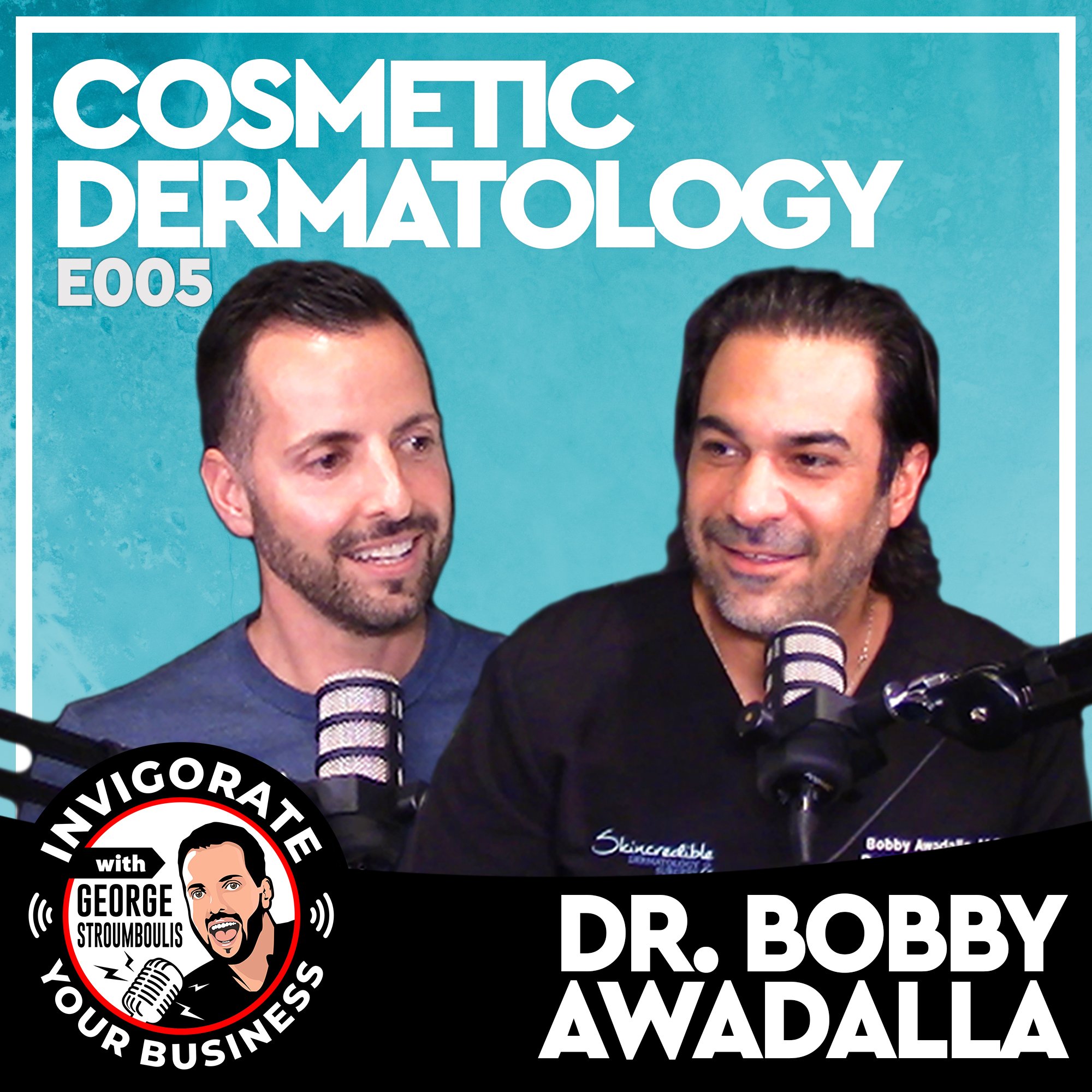
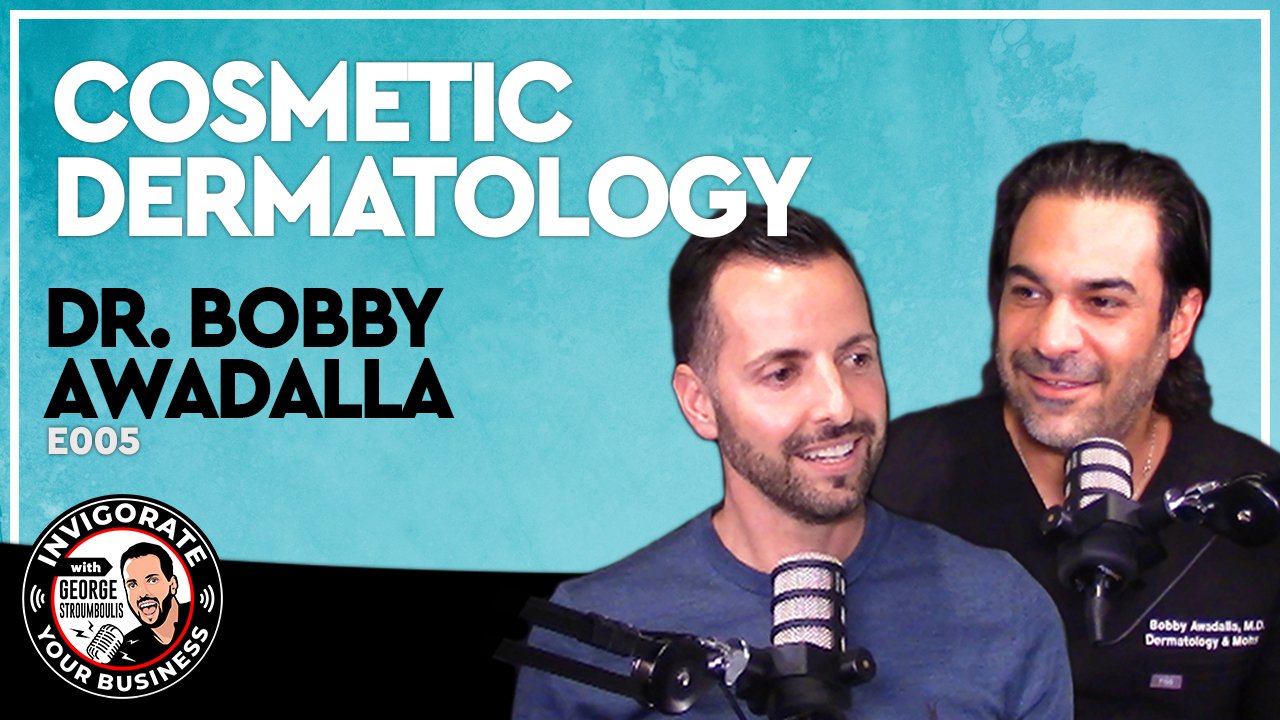
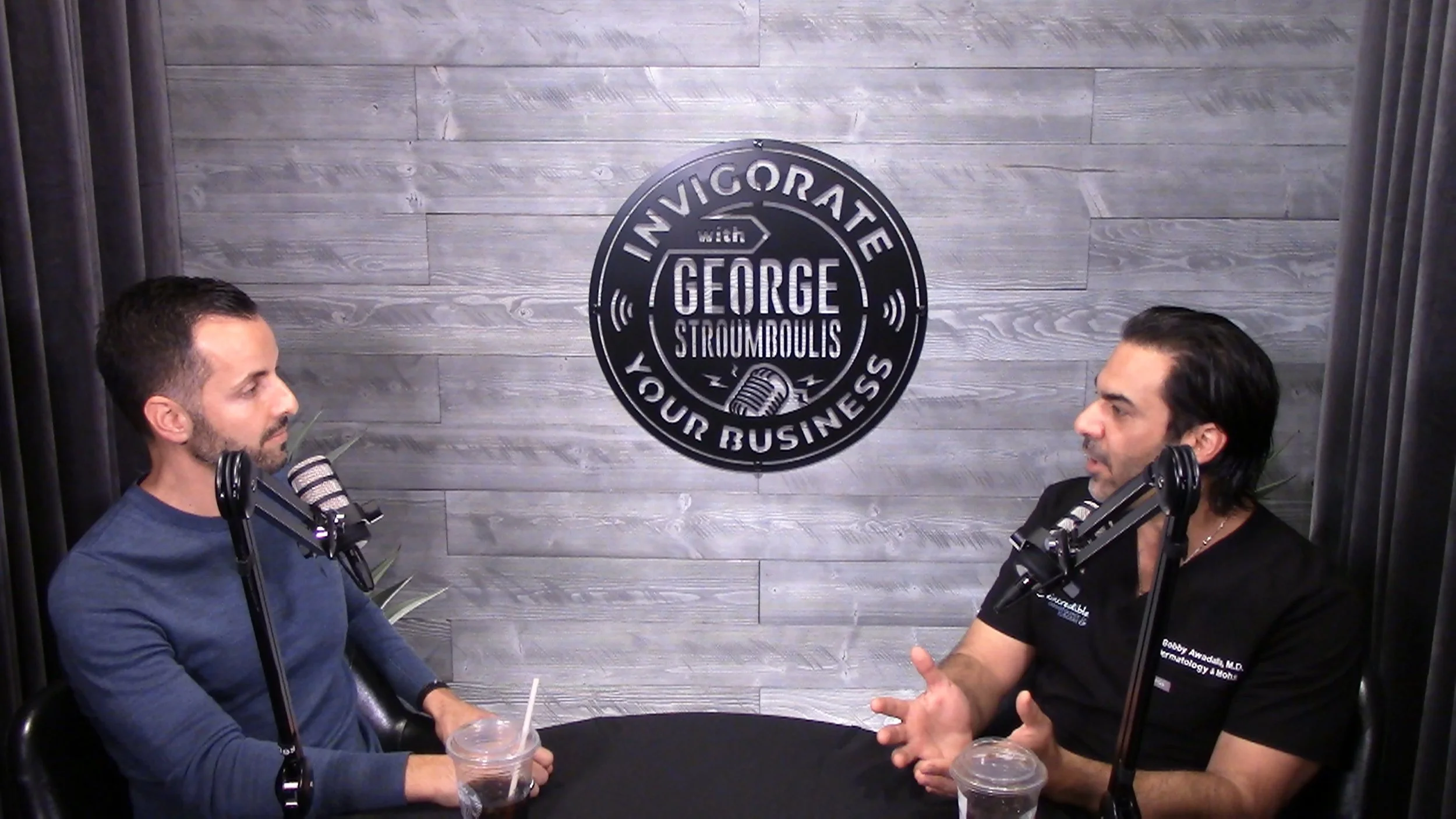
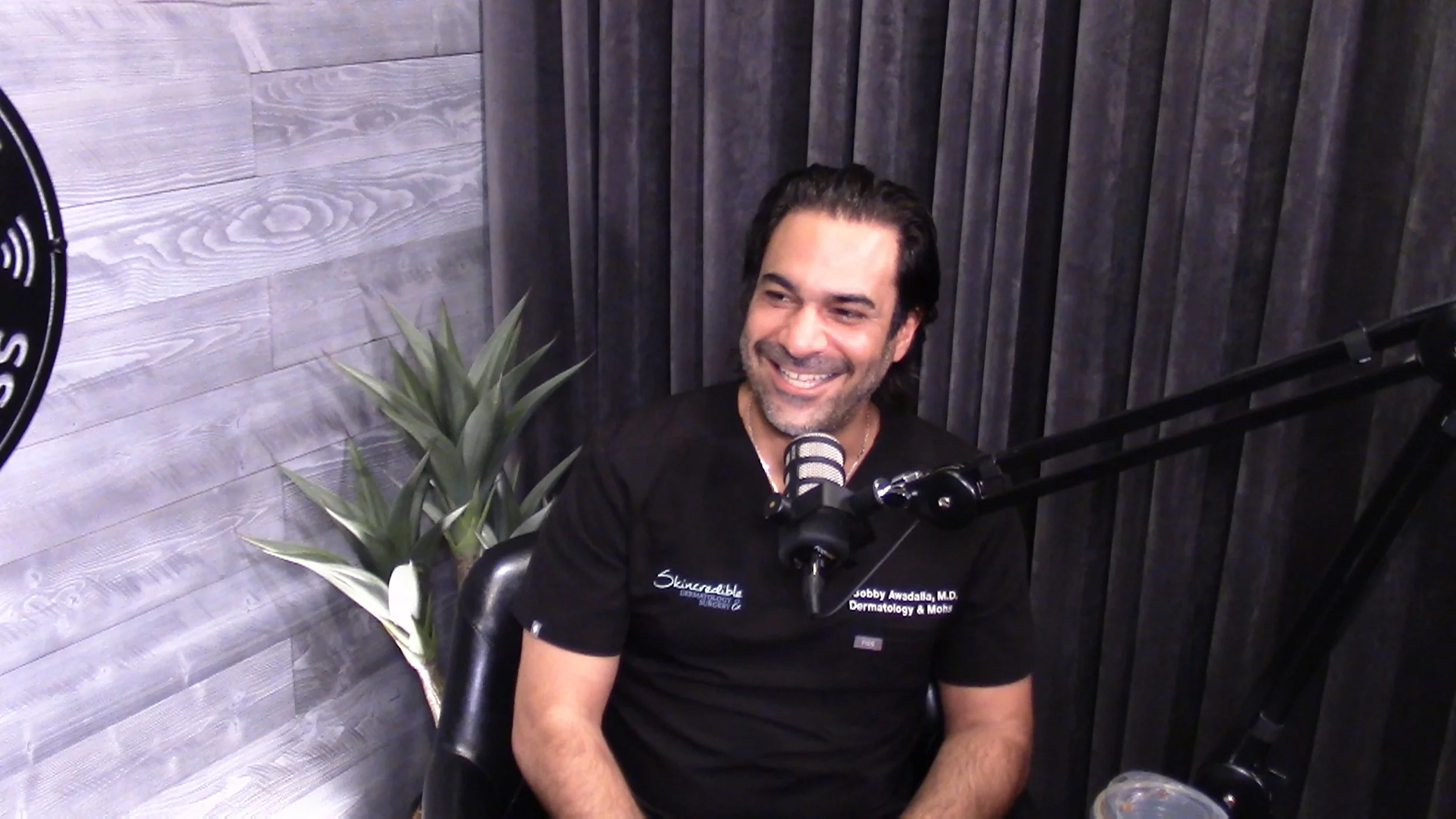
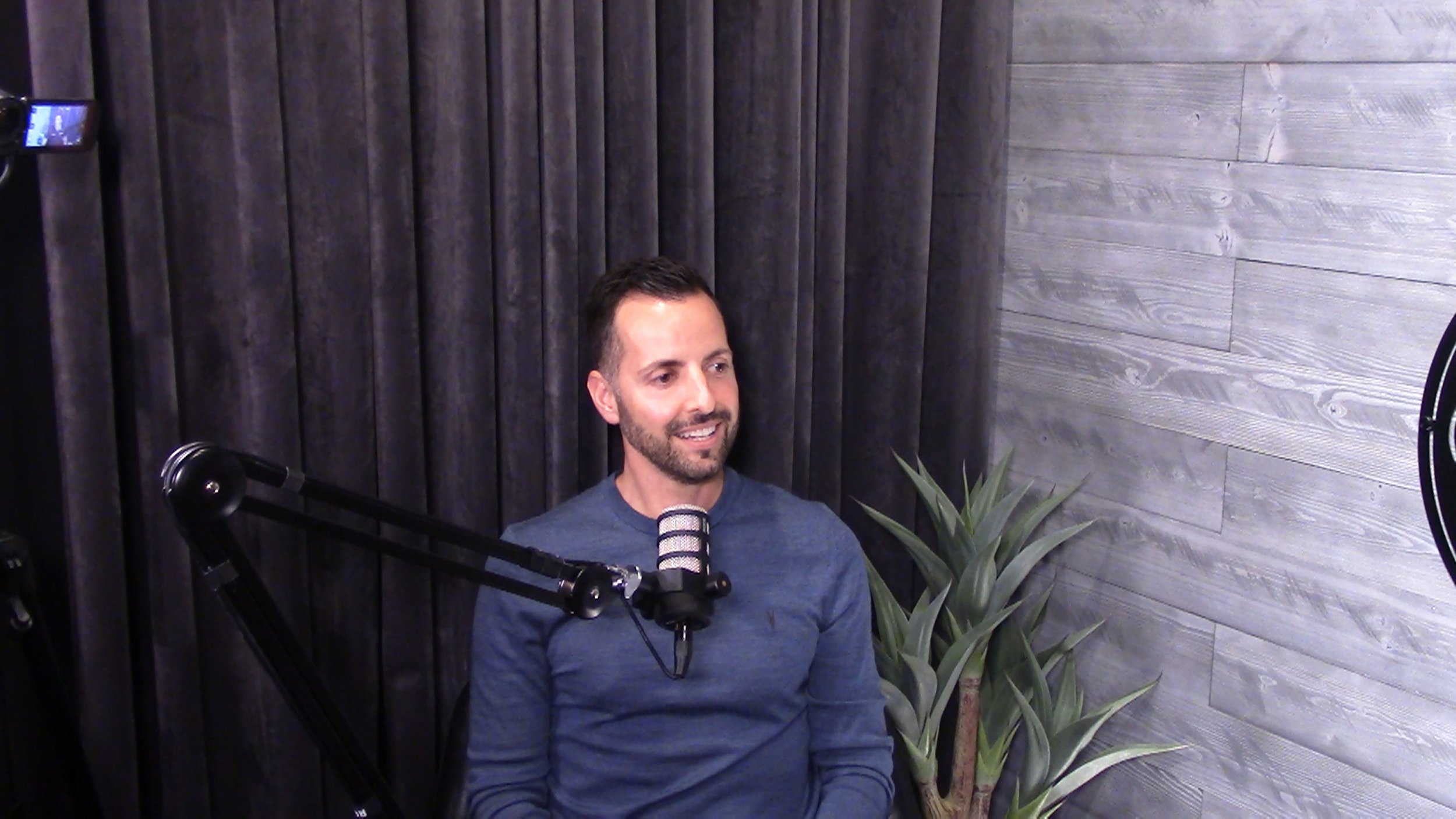
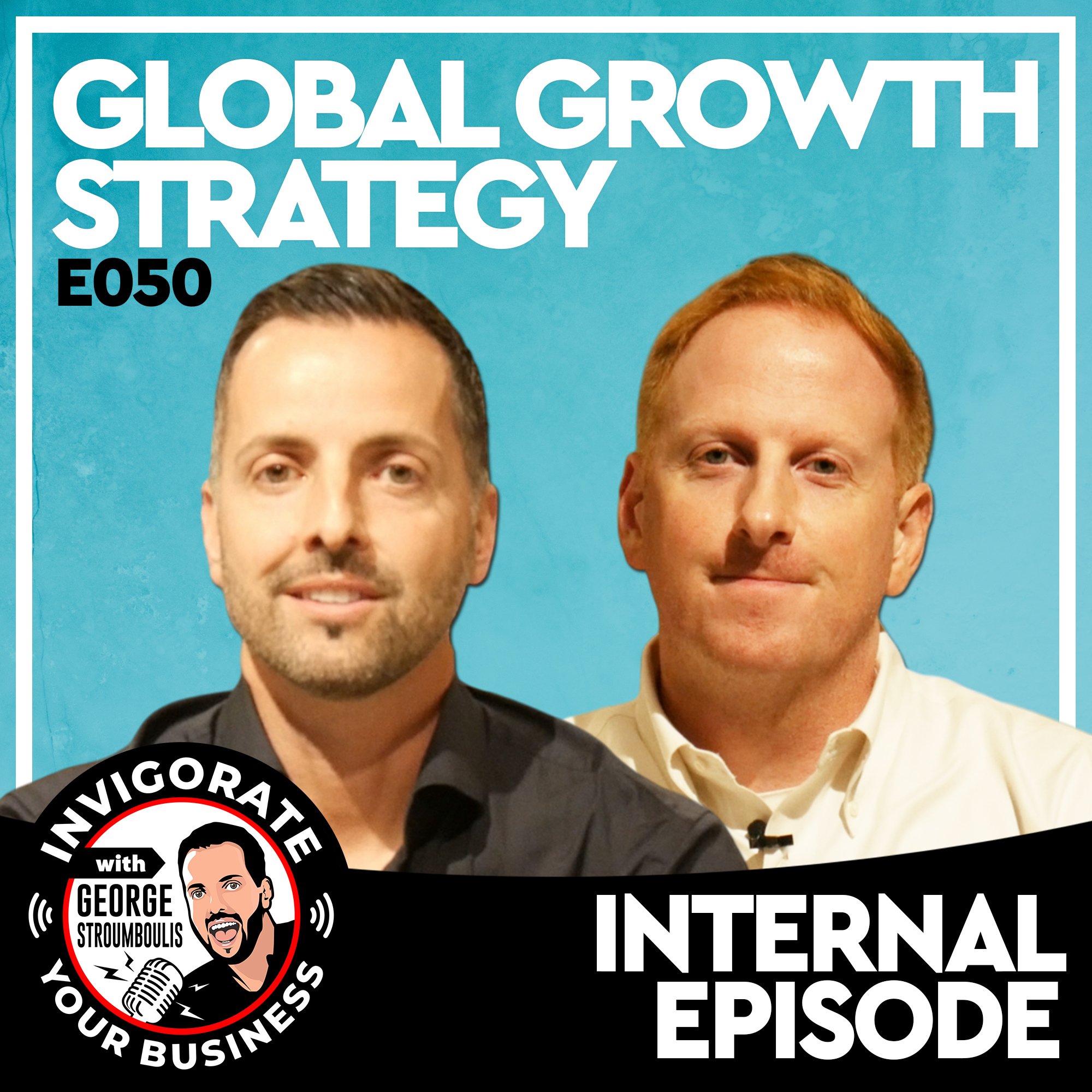

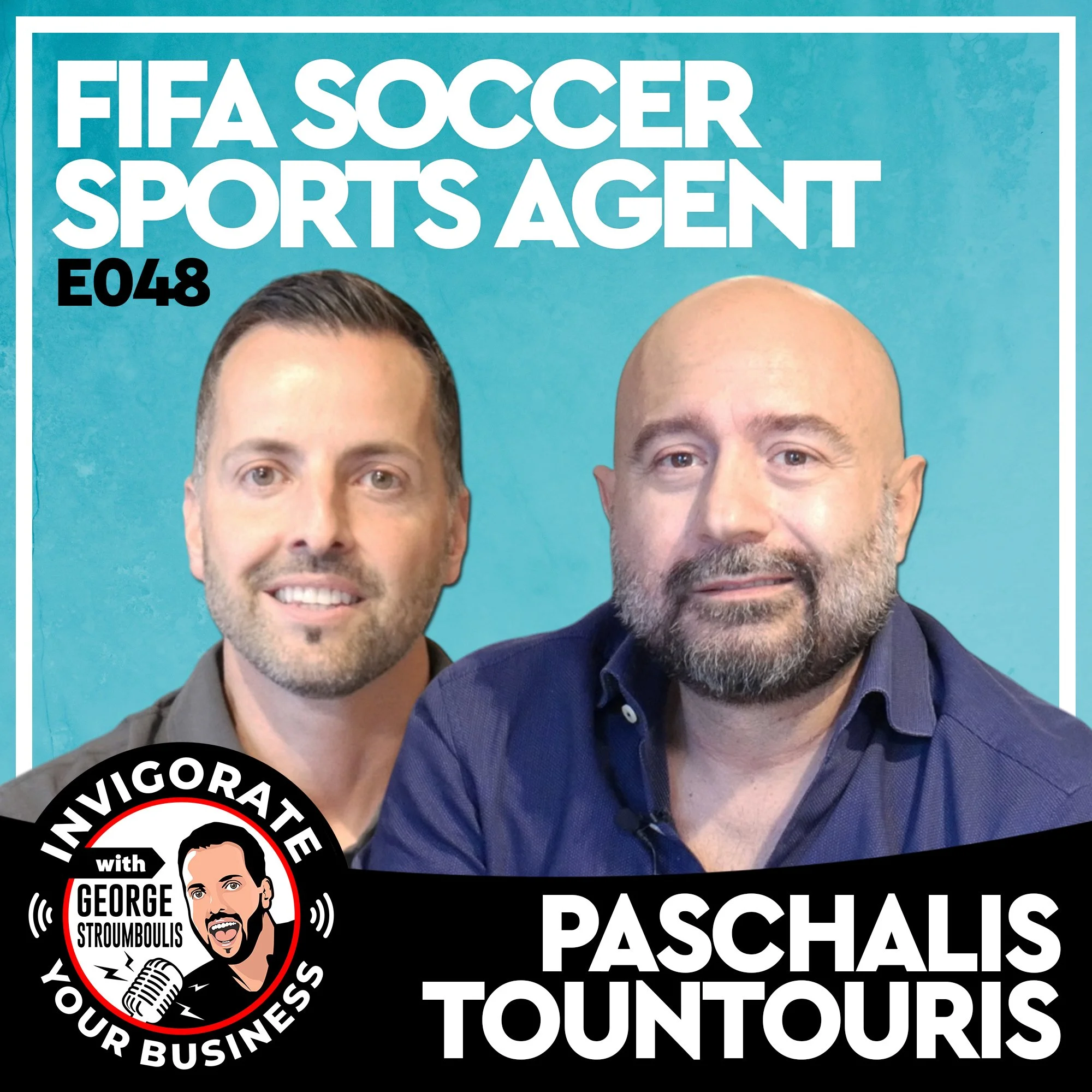
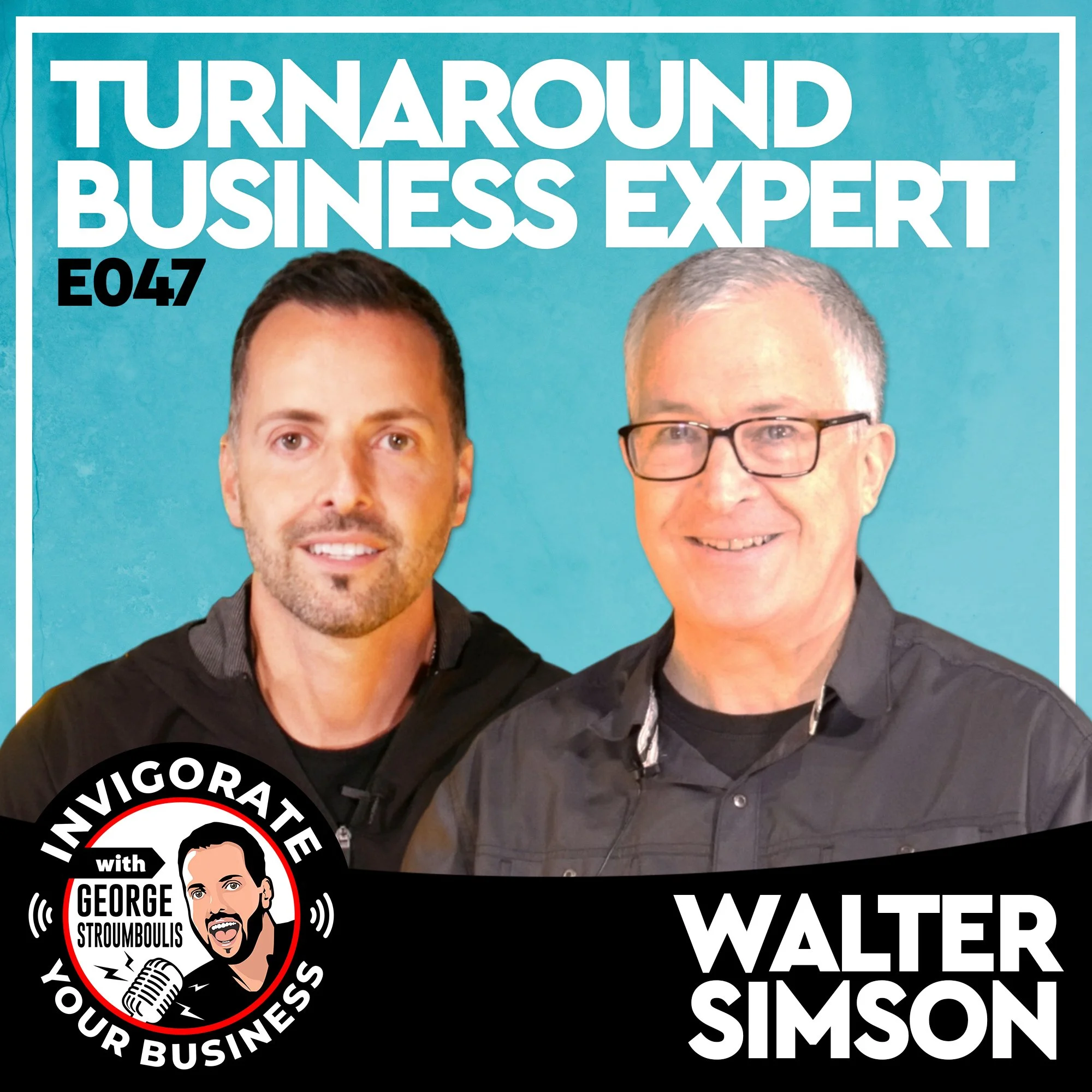
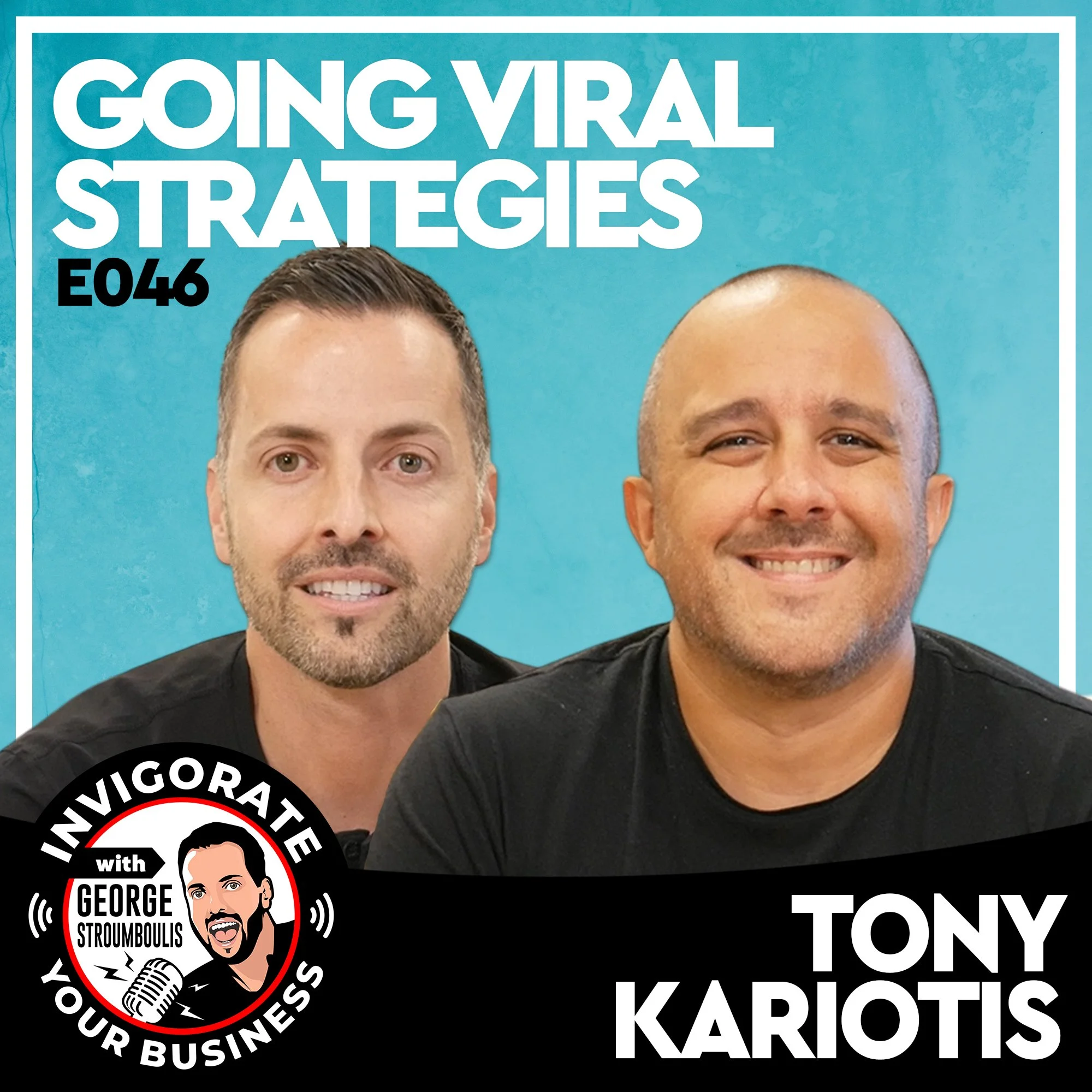

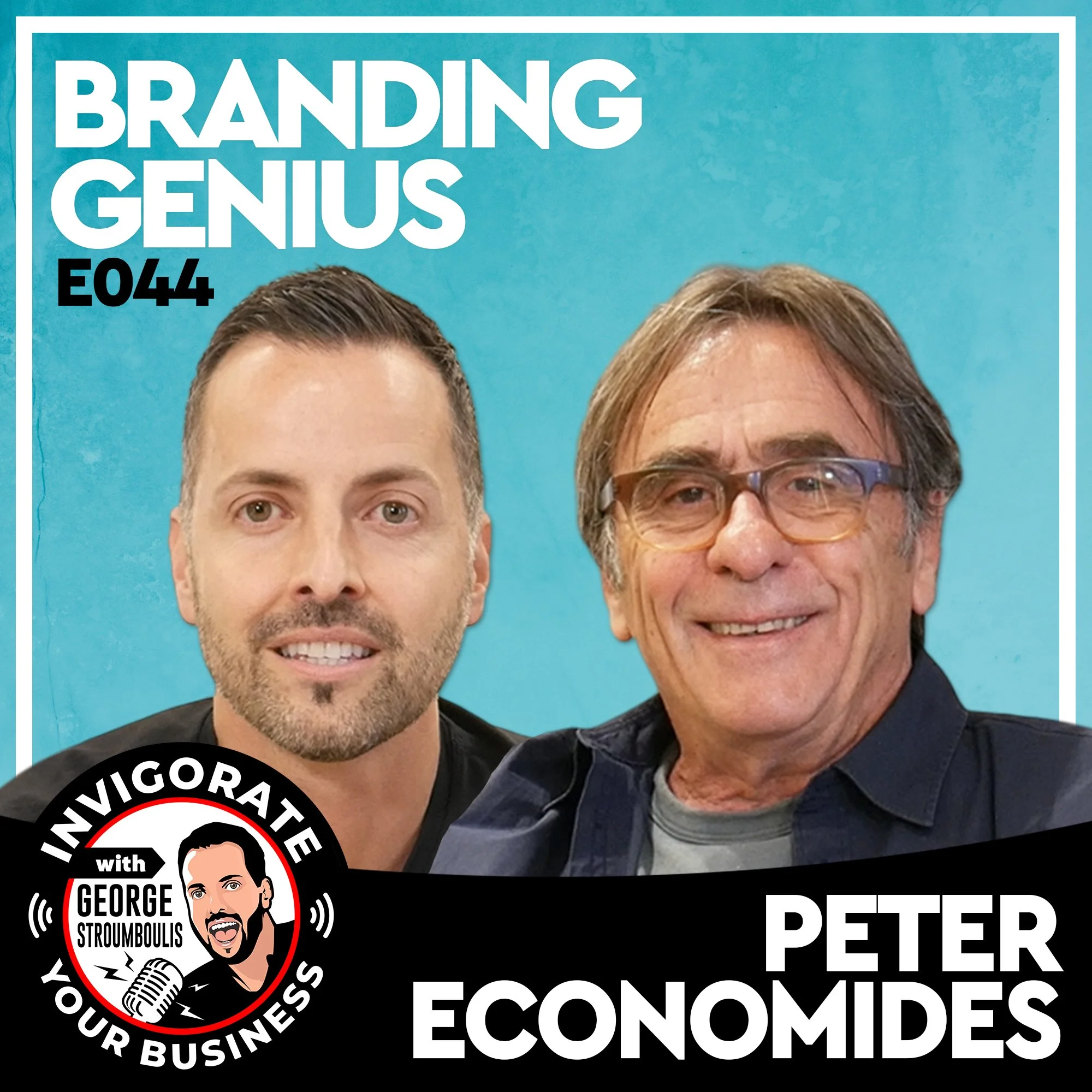
George Stroumboulis sits down with Jim Sogotis in Newport Beach, California on the Invigorate Your Business Podcast to talk about all things financial markets, investments, hedge funds, mutual funds, financial advice and so much more.